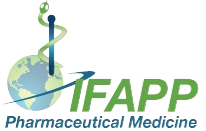The first Hungarian pharmaceutical companies were founded at the beginning of the twentieth century. The university pharmacological institutes and the pharmaceutical industry traditionally cooperated very closely in the discovery and clinical development of medicinal products.
After World War II, the pharmaceutical companies were nationalized and their activities coordinated within the national economic plan. In accordance with this organization, clinical development was also centralized within a clinical pharmacological network. The network employed medical doctors working in different clinical departments who received additional training in clinical pharmacology, trial management, ethical, and regulatory principles. The scientific plan for drug evaluation was worked out jointly by industrial experts and the employees of the network. Currently, this organization may be described as a true pharmaceutical medicine network.
The board examination in clinical pharmacology was introduced in 1979. Following political and economic changes in 1989, pharmaceutical companies regained their independence and considerably increased their medical units. A separate Clinical Trial Management Society was organized and became a member of the International Federation of Associations of Pharmaceutical Physicians and Pharmaceutical Medicine in 2004. The more than 300 active members with medical or life science training mainly work in pharmaceutical companies, contract research organizations, and the regulatory agency, performing all types of pharmaceutical medicine-related duties.
To train future experts in pharmaceutical medicine, a course in clinical medicine development was initiated at the Semmelweis University Budapest in 2009. Within the European Innovative Medicine Initiative–PharmaTrain program, the course was further developed into a joint international educational network of universities working in the Central-East European and Mediterranean regions under the name of the ‘Cooperative European Medicine Development Course’.
 International Federation of Associations of Pharmaceutical Physicians and Pharmaceutical Medicine
International Federation of Associations of Pharmaceutical Physicians and Pharmaceutical Medicine